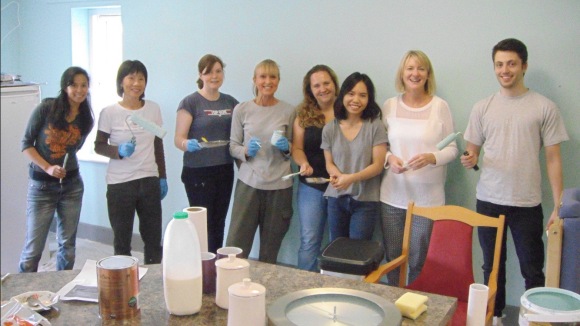Hello dear FLS blog reader,
Long time no see! Last we checked in I had received my placement offer in the midst of exam season craziness. Now, a few months later, I have resurfaced to give you a little recap of what I am doing for my placement, hopefully giving you a bit of insight into the type of opportunities available to you with your FLS degree.
In September I started my placement as Associate Study Manager in Clinical Development at GlaxoSmithKline, or GSK as we now call ourselves (that acronym has yet to stick in the public vocabulary). I spend my days in GSK’s offices in Stockley Park, which is an industrial park just outside of Uxbridge in the Greater London area. Stockley Park is one of GSK’s five Research & Development sites in the UK, with the others being located in Stevenage, Harlow, Ware and Weybridge.
Although you may associate a pharmaceutical company only with scientists, GSK employs some 100,000 people across the globe (16,000 of them in the UK) in sectors of finance, accounting, marketing, IT, programming, statistics and more, many of which are represented at Stockley Park. There are about 30 other placement students here in the various sectors, so we are a diverse bunch.
In the pharmacology industry, research efforts are divided according to therapy areas, such as oncology (i.e. cancer), respiratory (e.g. asthma), metabolic disorders (e.g. diabetes), among others. I work in the Infectious Disease Therapy area, in two clinical trial development teams — one for a flu drug, and another for a malaria drug. Both are currently in phase II, meaning they are on track for being clinically tested for safety and efficacy in a hundred-or-so people on a global scale.
The ultimate goal of the clinical development process is to set up and advance the progression of clinical trials with the aim of bringing new medicines to patients to allow them to do more, feel better and live longer. Running a clinical trial is a staggeringly complex enterprise (that I’m still just scratching the surface of!) that involves hundreds of people working together from various disciplines. This can be anyone from the physicians that will be recruiting patients for the trial in their practice or hospital, to independent ethics committees overseeing the trial, medical monitors, statisticians, clinical supplies managers, biomedical scientists, formulation chemists, central laboratories, document translators, regulatory bodies, contract managers, the list goes on. The role of the Study Managers (me!) is to act as a gravitational body to pull together all these disparate activities to ensure the trial progresses. In practice this is achieved through running training, debrief and discussion meetings with GSK employees and third parties across the globe, developing and evaluating trial protocols, projects, timeline and budget management, writing newsletters, making spreadsheets, and using online trackers, and more, depending on what needs to be done at any given time point.
The pharmaceutical industry is among the most regulated in the world, and the environment in which trials are run is always changing and becoming ever more complex. This means you cannot rest on your laurels and calls for being an active learner on the job. A lot of my time has been devoted to training and understanding the environment I am working in; attending seminars from medicinal chemists, global manufacturing managers, in vivo bench scientists and many other functions. This has given me a bit of a cradle-to-grave overview of the pharmaceutical industry, and working in the influenza and malaria clinical development teams has put me in the “perfect storm” of all things clinical trials (and opportunities to work on fun side projects — see image below).

A more hands-on depiction of the team on GSK’s annual out of office volunteering day, Orange United (me on right ready to poke someone with a paint roller)
Now, far be it from me to be so vainglorious as to claim that I am any sort of authority in all these things I’m supposedly managing (my job title has the word “Associate” in it, after all) and to be fair, you are not expected to be. Everyone will reiterate to you that an Industrial Placement year is primarily a learning opportunity. If there is one insight that I have arrived at so far, it is that learning has different implications outside of academic institutions, where the problems you will be presented with are often neither clear-cut nor will you always know whether the solutions you come up with are the right ones. However, part of that learning process is developing the confidence to believe that your work and input can be of value to someone and hopefully when my placement is over I can come back to Manchester knowing it was!
So if you are thinking of doing a placement year, my parting words to you would be that it is definitely a worthwhile experience and you should jump on the opportunity! Take a risk — you will be all the better off for it.
Yours until further notice,
Kai
